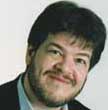
Jeff Jacoby
Everyone got it wrong before 9/11
http://www.NewsAndOpinion.com | We'll get to last week's big Washington story -- Condoleezza's Rice's testimony before the Sept. 11 Commission -- in a moment. But first, a short quiz:
1. Identify the following list of topics:No clue? Don't feel bad. You would have to be suffering from acute foreign-policy wonkishness to recognize the table of contents from the September/ October 2001 issue of Foreign Affairs, the flagship publication of the Council on Foreign Relations. Like the curious incident of the dog in the night-time -- in the famous Sherlock Holmes tale, the "curious incident" was that the dog didn't bark -- the significance of these headlines is not in what they say but in what they don't say: The nation's leading journal of international relations was paying no attention to the threat from Islamist terror even as Islamist terrorists were planning the deadliest attack ever committed by foreign enemies on US soil.
"The World Bank's mission creep"
"Getting debt relief right"
"Russia's unformed foreign policy"
"Japan, the reluctant reformer"
"With a friend like Fox"
"Caspian energy at the crossroads."
2. Which US senator admitted on Sept. 11, 2001, "We have always known this could happen. . . . I regret to say -- I served on the Intelligence Committee up until last year. I can remember after the bombings of the embassies, after TWA 800, we went through this flurry of activity, talking about it -- but not really doing the hard work of responding.''
That was John Kerry on "Larry King Live," ruing his and his colleagues' pre-9/11 failure to give the threat from international terrorism the urgent attention and "hard work of responding" it should have had.
3. President Clinton's final national security policy paper, submitted to Congress in December 2000, was 45,000 words long. Yet it never once mentioned which international menace?
Al Qaeda. The document referred to Osama bin Laden just four times, and its discussion of terrorism spoke not of wiping out the killers in their nests but of extraditing "fugitives" to make them "answer for their crimes."
Which brings us back to Rice's appearance last week.
If anything has been obvious since 9/11, it is that the government of the United States, like the foreign-policy establishment generally, was grossly derelict in its understanding and handling of Islamist terrorism. That was true during the first eight months of the Bush presidency and it was true during the preceding 8 years of the Clinton presidency. For all the atmospherics of the Sept. 11 Commission, for all the partisan skirmishing of its Democrats and Republicans, there was no important difference between the two administrations prior to that terrible day. Rice's efforts to prove otherwise were largely unconvincing. So, a week earlier, were Richard Clarke's.
The simple truth was put bluntly by Rice in her opening statement: "The terrorists were at war with us, but we were not yet at war with them. For more than 20 years, the terrorist threat gathered, and America's response across several administrations of both parties was insufficient." Democracies rarely face up to the worst dangers they face until disaster strikes. Until then, political leaders find it much easier to do nothing than to press for unpopular reforms and face the public's wrath.
Imagine the backlash the administration would have faced, for example, if it had reacted aggressively to the CIA briefing in August 2001 that warned of possibile terrorist hijackings -- the one ominously titled "Bin Laden determined to attack inside the United States." If the Transportation Department, on the strength of that warning alone, had ordered air travelers to arrive at least two hours before their flights, banned a long list of common household objects -- knives, knitting needles, scissors -- from airplanes, and authorized pilots to eject "Middle Eastern" ticketholders they deemed suspicious, the public would have reacted with fury. And the administration would have backed down.
Prior to 9/11, no president from Jimmy Carter through George W. Bush properly understood or reacted to the swelling danger of Islamist terrorism. None recognized that we were under attack by a ruthless enemy bent on global conquest and the destruction of Western liberty. Neither did leaders in Congress, nor elite opinionmakers in the media.
Far more important is what has happened since 9/11: The Bush administration went to war. It destroyed Al Qaeda's base in Afghanistan, toppled Saddam Hussein's dictatorship, turned Pakistan from a backer of terrorists into a terror-war ally, and intimidated Libya into ending its pursuit of nuclear weapons. Crucially, the administration has demolished the perception of America as -- in bin Laden's derisive term -- a "weak horse" that bolts at the first gunshot. And it did it all in the face of withering political fire at home and abroad.
How you regard that performance -- as invaluable wartime leadership by the president or as a fraud "made up in Texas" -- is likely to decide how you vote this November. For what matters now isn't who was wrong before 9/11. It is who has been right since.
Like this writer's work? Why not sign-up for the daily JWR update. It's free. Just click here.
Jeff Jacoby is a Boston Globe columnist. Comment by clicking here.


